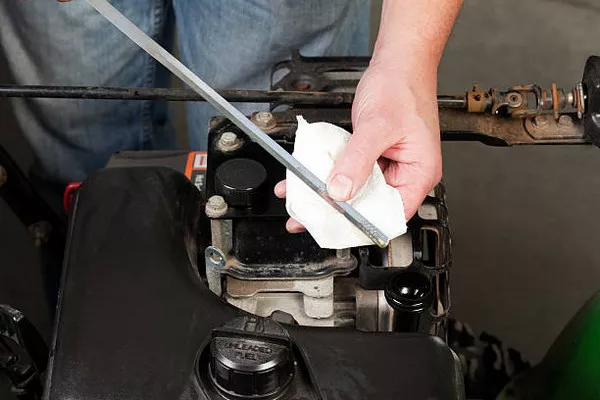As winter arrives, many homeowners in colder climates prepare for the challenges of snow and ice management. Ariens snowblowers have long been trusted companions in the battle against winter weather, renowned for their reliability and performance. To ensure your Ariens snowblower continues to operate efficiently, one crucial consideration is the type of gasoline you use. In this article, we will explore the factors to consider when selecting the right type of gas for your Ariens snowblower, helping you extend its life, improve its performance, and keep your property snow-free throughout the winter season.
Why Gas Matters
Your Ariens snowblower is a mechanical marvel, with a powerful engine designed to tackle heavy snow and ice. The type of gasoline you use plays a vital role in maintaining the performance and longevity of this engine. Using the wrong fuel can lead to decreased efficiency, increased maintenance costs, and even engine damage. To avoid these issues and keep your Ariens snowblower in top condition, understanding the importance of the right type of gas is essential.
Choosing the Right Fuel
Ariens recommends using regular unleaded gasoline with an octane rating of 87 or higher for their snowblower engines. The octane rating indicates the fuel’s ability to resist knocking or pinging during combustion. In simpler terms, higher-octane fuel can handle higher compression without detonating prematurely, which is crucial in high-compression snowblower engines.
The primary options to consider when choosing fuel for your Ariens snowblower are ethanol-blended and ethanol-free gasoline.
Ethanol-Blended Gasoline:
Ethanol-blended gasoline is the most commonly available fuel at gas stations. It typically contains up to 10% ethanol (E10). While it is readily available, cost-effective, and generally suitable for small engines, there are some considerations to keep in mind:
a. Ethanol’s Impact: Ethanol is known to attract moisture, which can lead to water accumulation in the fuel system. This can result in poor engine performance and potentially damage critical engine components.
b. Stale Fuel: Ethanol-blended gasoline tends to go stale faster than ethanol-free gasoline. This is a concern if you plan to store your snowblower for extended periods between seasons.
c. Fuel Stabilizers: To mitigate the negative effects of ethanol, it is advisable to use a fuel stabilizer when using ethanol-blended gasoline in your snowblower. This can help reduce the risks associated with moisture absorption and fuel deterioration.
Ethanol-Free Gasoline:
Ethanol-free gasoline, as the name suggests, does not contain any ethanol. It is considered a premium fuel option and offers several advantages for snowblower engines:
a. No Ethanol-Related Issues: Ethanol-free gasoline eliminates the concerns associated with moisture absorption and fuel system problems, making it a cleaner and more reliable option.
b. Improved Storage Life: Ethanol-free gasoline has a longer shelf life, making it ideal for those who plan to store their snowblower during the off-season without the need for fuel stabilizers.
c. Enhanced Engine Longevity: Ethanol-free gasoline is less likely to cause corrosion, varnish buildup, and other issues that can negatively impact the engine’s lifespan.
The choice between ethanol-blended and ethanol-free gasoline largely depends on your specific circumstances and preferences. Ethanol-free gasoline is often recommended for those who want to ensure optimal performance and engine longevity, especially in regions where it is readily available. However, if ethanol-free gasoline is not easily accessible, using ethanol-blended gasoline with the necessary precautions can still yield good results.
Fuel Additives
In addition to choosing the right type of gasoline, you can further optimize your Ariens snowblower’s performance and longevity by using fuel additives. Fuel additives are designed to address various issues related to engine performance and fuel quality. Here are some common fuel additives to consider:
Fuel Stabilizers: Fuel stabilizers are essential if you plan to store your snowblower for an extended period. They prevent fuel from going stale, which can lead to engine starting problems and reduced performance.
Fuel Cleaners: Fuel system cleaners can help remove deposits and carbon buildup in the engine, ensuring smoother operation and better fuel efficiency.
Octane Boosters: Octane boosters can be useful if you are using lower-octane gasoline and want to reduce the risk of knocking or pinging in your snowblower’s engine.
Maintenance Tips
To ensure that your Ariens snowblower runs smoothly throughout the winter, regular maintenance is crucial. Here are some essential maintenance tips to follow:
Check the Spark Plug: Inspect the spark plug regularly and replace it as needed. A clean and properly functioning spark plug is vital for ignition and engine performance.
Change the Oil: Change the engine oil according to the manufacturer’s recommendations. Fresh oil helps lubricate the engine and prolong its life.
Clean or Replace the Air Filter: A clean air filter allows for proper air intake, which is essential for combustion. Ensure the air filter is clean and replace it when necessary.
Inspect the Fuel Filter: The fuel filter should also be checked and replaced if it’s clogged or dirty. A clean fuel filter ensures a consistent fuel supply to the engine.
Lubricate Moving Parts: Lubricate all moving parts to reduce friction and wear. Pay special attention to the auger and impeller components.
Keep the Fuel System Clean: Prevent fuel system issues by using high-quality fuel, fuel stabilizers, and additives. Clean the fuel tank and lines if necessary.
Store Properly: When storing your snowblower for the offseason, use a fuel stabilizer and run the engine until it is out of fuel. This prevents fuel from deteriorating and causing problems during startup in the next season.
Conclusion
Choosing the right type of gasoline for your Ariens snowblower and maintaining it properly are essential steps to ensure that your snow removal equipment remains reliable and efficient in the face of winter’s challenges. The decision between ethanol-blended and ethanol-free gasoline should be based on your location, access to fuel options, and your storage and usage habits. Regardless of your choice, it is essential to prioritize regular maintenance and the use of fuel additives to keep your Ariens snowblower in peak condition, ready to take on the heaviest snowfalls and provide peace of mind throughout the winter season.

